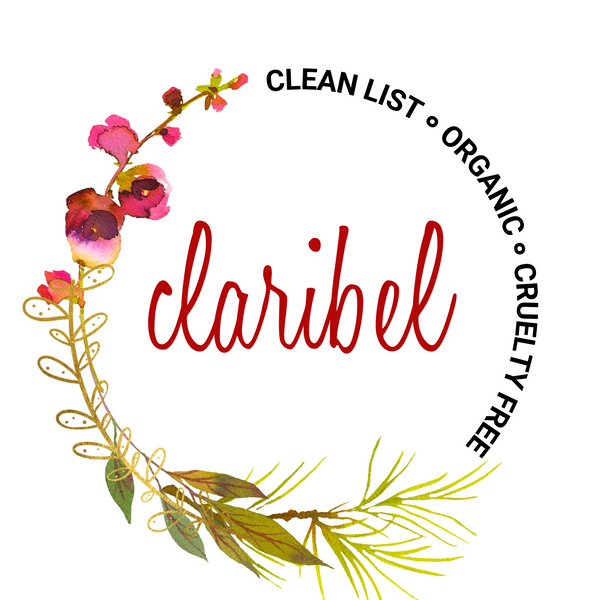
How to Fade Acne Scars Naturally | 5 Strategies and 3 Key Ingredients
Anyone who has ever had acne understands what happens after we pick and squeeze breakouts. Eventually, with enough rough handling, skin will scar and become discolored.
When an acne scar forms, it means that the collagen in your skin is damaged from inflammation, resulting in a permanent texture change.
The 3 Main Kinds of Acne Scars
Ice pick scars: Deeper than they are wide, with jagged edges. Sometimes they resemble a large, scooped out pore.
Boxcar scars: Broad, rectangular depressions with steep, defined edges.
Rolling scars: Broad depressions that have rounded, sloping edges, hence the name.
Normally acne scars can take several years to fully disappear, but with the right kinds of treatment decisions, improvement in the appearance of skin and decrease acne scars is seen in a much shorter amount of time.
Acne scarring often leaves skin with uneven skin tissue or discoloration that can make anyone feel very self-conscious.
Bring your skin back to its original smooth texture with the right treatments and action – all in the comfort of your own home without the high price tag of a doctor’s office or expensive spa treatment.
Medical studies have shown that one can expect significant improvements when the following treatments and techniques are handled properly.
5 Actions You Can Take to Eliminate Acne Scarring
MICRONEEDLING
There are many treatments out there to help fade the various forms of acne scarring – including lasers and microdermabrasion – but Microneedling is the preferred option. Microneedling is probably the best for scarring, and also helps reduce the signs of aging. By making micro-wounds in the skin, we are forcing it to produce new healthy collagen and elastin which reforms the skin. This process actually causes skin to grow fresh skin cells and smooth out the existing skin.
LED LIGHT THERAPY
Light therapy has been shown to work on so many skin concerns, from loss of collagen to active breakouts, and recent research suggests that red LED in particular may help to reduce inflammation and prompt cellular repair, aiding the skin to recover from a breakout more effectively.
Where such therapies were once confined to the four walls of a dermatologist's office, a handful of brands have now harnessed this advanced technology in at-home masks and hand-held gadgets. Look for one with a red-light setting (the majority have this), and use it regularly for cumulative results.
PEELS
Even if you have severe acne scars, don’t underestimate the power of a product that includes acids for non-abrasive exfoliation. What's more, at-home peels have come a long way in recent years, and there are now safer and better than ever.
DERMABRASION AND MANUAL EXFOLIATION
Dermabrasion and manual exfoliation are two excellent and most effective treatments for facial scars. Because they both use the same general principle of scraping away the top dead skin cells, they both perform the same way.
LASER TREATMENTS
A laser treatment done by a Dermatologist or salon or spa can help remodel collagen, helping reduce existing acne scars, but they are expensive. When lasers are used to treat acne scars, the results can differ dramatically based on two things: how many treatments you have done, and how much social downtime you're willing to accept as part of the recovery process.
3 Ingredients to Help Reduce Acne Scars
VITAMIN C
When it comes to brightening dark hyperpigmentation, vitamin C should be a key weapon in your skincare arsenal. It can revitalize the skin, and brighten it, while stimulating your body’s natural production of collagen. Not only does it help to lighten and break-up pigmentation you might already have, but it also prevents dark spots or sun spots from forming in the future.
TOPICAL ACIDS: GLYCOLIC ACID AND TRICHLOROACETIC ACID
An acid product is a great way to fade post inflammatory hyperpigmentation and scars, and gradually remove (slough away top layers). They can help the skin to exfoliate quickly and fade the discoloration. Alpha-hydroxy-acids such as glycolic and lactic acid work by dissolving the 'glue' that holds dead skin cells together, revealing brighter, fresher skin beneath.
On black and brown skin, it's best to do a series of light to medium peels over a course of a few months as opposed to doing a single deep peel.
RETINOL
Retinol (vitamin A) is useful for acne as it controls the hyperpigmentation by increasing the cell turnover rates. This renewal will help to reduce post-inflammatory hyperpigmentation.
Best Ways to Prevent Acne Scars
Consider quality acne prevention products from sprouting in the first place. Early, effective acne treatment can go a long way in reducing pimples and prevent inflammation that can cause permanent scarring. Determine what your personal needs and preferences are, and go for those products that best fit your criteria.
Don't pick at your pimple. Sure this is an obvious answer, but since we all want to do it so badly, make sure that however you decide to handle your skin, you clean the area after you mess with it and wash your hands. Briefly cleanse the area with a half hydrogen peroxide, half water solution, or your favorite toner or acne cleanser. This will help dry out the lesion and minimize any bacterial growth, which helps prevent infection and scarring.
Quickly decrease inflammation. Inflammation of acne is one of the main things that causes discoloration or scars, so quickly decreasing inflammation is key. This can be done with topical spot sulfur treatments or calming herbal ingredients that are known to have anti-inflammatory properties. You can make a paste of crushed aspirin (salicylic acid) and water to reduce inflammation if your favorite calming product is not handy.
Use sunscreen regularly. Those dark spots are created by the same pigment cells that darken your skin with a tan, called melanocytes. Therefore, using sunscreen regularly can help prevent these cells from becoming more active and can reduce the risk of this type of scarring.
Medical Study: TCA is Proven Effective to Help Fade Acne Scars Naturally
Treating acne scars of moderate to severe variety can be challenging, and that challenge can be increased when we treat darker skin types. Extreme caution needs to be sought with aggressive and deeper interventions as the risk of pigmentary complications rise. To obtain satisfying visible outcome for moderate to severe acne scars the modalities often need to be combined to optimize the results. Low strength glycolic and TCA treatments are very helpful for dark and all skin types.
It’s best to treat your skin with these options with a comfortable potency and strength several times. This way you can control your progress.
Our Glycolic and TCA Exfoliating Cream is the perfect product to help you fade acne scars naturally and achieve your goals when hoping to diminish the appearance of scarring and discoloration.
It is a safe, at home option that requires virtually zero down time and a natural ingredients list for healthier scar and discoloration removal.
Perfect for all skin types and skin colors. Improve the texture and appearance of your skin anytime you wish with convenience and ease.

